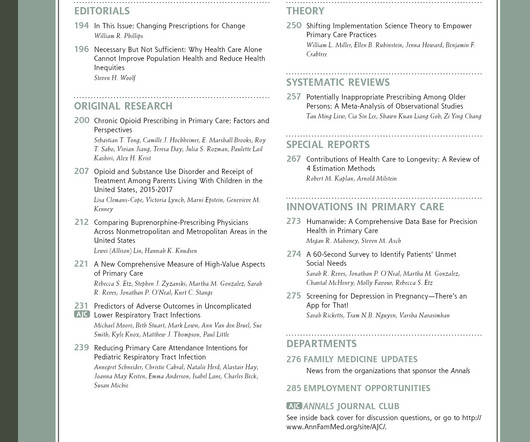Risks and Needs: Lessons Learned from Assessing Patients Willingness to Receive Help for Social Risks in Primary Care [Social determinants and vulnerable populations]
Annals of Family Medicine
NOVEMBER 20, 2024
Context: In May 2023, Mayo Clinic implemented a revised screening tool to assess social determinants of health (SDOH) for its patients. Objective: To assess the impact of a question on need for assistance with social risk factors identified through routine screening.











Let's personalize your content